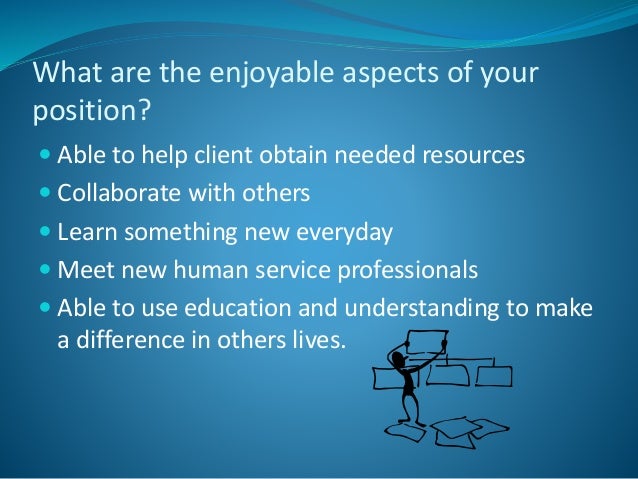For aspiring social work case managers, successfully navigating the interview process is vital to secure their desired positions.
We will talk about case manager social workers in this Social Work Portal guide. We will also look at the best case worker interview questions and answers that are usually asked during these important tests.
We will also give you a lot of information about the skills and qualities employers want in job candidates, as well as professional tips on how to write answers that show you are qualified for this rewarding job.
 All You Need to Know to Navigate Interview Questions for Case Worker
All You Need to Know to Navigate Interview Questions for Case Worker
We’re going to go on this journey together to find the best social work case scenarios and answers that will help you show off your skills, leave a lasting impression, and start a career that changes lives.
Scroll down to read each part, or click on any of the links below to go straight to that part.
First, let’s talk about what a case manager and a certified social work case manager are and answer the question “Is a case manager a social worker?” that we keep hearing.
Social workers have a job called “case management,” which involves figuring out what people and families going through tough times need and then planning, coordinating, and speaking up for those needs.
Someone who works as a social worker and has specialized training in case management is called a certified social work case manager.
There may be professionals from other disciplines who also work as case managers, such as nurses or counselors. Case management is, however, a common and important task that social workers often carry out in their work.
We now know what a case manager is and if a case manager is a social worker. Let’s look at the job description for a social worker case manager.
What else do you know about the question “Is a case manager a social worker?” If so, please get in touch with the Social Work Portal Team.
The job description for a social worker case manager includes a variety of duties that are meant to help and support people and families who are going through different problems.
Here is a comprehensive overview of the key components of the social worker case manager job description:
 Social Worker Case Manager Job Description
Social Worker Case Manager Job Description
To do these jobs well, you need to be able to communicate and get along with others, understand other cultures, and handle a lot of cases at once.
A job description for a social worker case manager also says that the person who gets the job should have a strong grasp of social work ethics, principles, and best practices.
Proficiency in documentation, data management, and knowledge of community resources are also essential for success in this role.
Now that we’ve talked about what a social worker case manager does, let’s jump right into how to define work style in social work and figure out what yours is.
Work style in social work refers to the methods and approaches that social workers use in their daily work.
It includes the beliefs, values, and methods they use to work with clients, solve social problems, and make things better.
For social workers, these parts of their work style help them help people, families, and communities more effectively and have a bigger effect.
By living by these principles, social workers can make a real difference in the lives of the people they serve and improve their health and social skills.
What is your work style in social work? Now that you know that, let’s move on to the “Tell me about yourself” part of the social work interview for the role of case manager social worker. This will typically be a starting point for all the other assessment questions in social work interviews.
Have something to say about this list of common interview questions for social workers? Click here to get in touch with the Social Work Portal Team.
What is a “Tell Me About Yourself Social Work Interview”? | Case Manager Social Worker Role
It’s common for social work interviews to start with the “Tell Me About Yourself” question. This is true even for interviews for the position of case manager social worker.
The “Tell me about yourself” question lets you introduce yourself, talk about your relevant skills and experiences, and set the tone for the rest of the interview.
Before you answer the “Tell me about yourself” question, make sure you know how to answer it as a case manager social worker:
Remember to keep your response concise, focused, and relevant to the case manager social worker role.
You can make a good first impression and set the stage for a successful interview by clearly describing your skills, experiences, and interest in the job.
Now, let’s look at some case worker interview questions you should be ready to answer.
While you’re getting ready for your case worker interview, it can be helpful to know what kinds of questions you can expect.
 Case Management Assessment Questions in Social Work Interview
Case Management Assessment Questions in Social Work Interview
You should be ready to give specific examples and stories from your past to show what you know, can do, and how you know it.
Customize your answers to show that you understand the organization’s mission and values, as well as the people you will be working with as a case worker.
We’ll go over different kinds of case manager and social worker interview questions, as well as case worker interview questions and answers, so you can be fully ready for your interview.
Would you like to share your thoughts on case manager job interview questions or social work situations? If so, please get in touch with the Social Work Portal Team.
During an interview for the job of case worker, you can expect to be asked a variety of questions that test your knowledge, skills, and fit for the job.
It’s likely that the social worker interviewer will ask you a variety of questions, such as case scenario questions and open-ended questions.
Tell us about the different groups of people you’ve worked with and how you make sure your work is culturally competent.
Question: “In my previous job, I worked with a wide range of people, including those of different races, socioeconomic backgrounds, and ages.”
I believe in the importance of cultural competence in providing effective care. I learn about different religions, traditions, and values on a regular basis, and I treat every client with respect and an open mind.
Getting to know someone and building trust are important to me, and I make sure that my interactions and communications are tailored to meet the specific cultural needs of each person. ”.
Answer: “I once had a case involving a family facing homelessness and domestic violence. It required a comprehensive approach, involving collaboration with shelters, legal aid services, and counseling resources.
I did a full evaluation, put the family’s safety first, and came up with a coordinated plan that included legal protection, counseling services, and immediate housing support.
We were able to get the family safe housing and set them up with ongoing support services by being persistent, speaking out, and working well as a team. ”.
Answer: “When there is a crisis, I stay calm and focused on making sure the person or family involved is safe and healthy.”
I figure out how dangerous it is and act right away to make sure they are safe, whether that’s calling the police, finding them a temporary place to stay, or putting a safety plan into action.
In addition, I work with the right crisis response services and provide ongoing support to help people and families get back on their feet after a crisis. ”.
Answer: “I believe in open and respectful communication when conflicts arise. I actively listen to understand different perspectives and seek common ground.
I am receptive to feedback and constructive criticism, as it allows for professional growth. In situations where conflicts cannot be easily resolved,.
I use my skills in mediation and negotiation to help clients reach a solution that works for everyone.
Ultimately, I want to create a team environment that is collaborative, supportive, and puts the health and happiness of the people we serve first. ”.
That being said, keep in mind that these are just examples of case worker interview questions. You should make sure that your answers are unique to you and the needs of the job you are applying for.
Focus on being clear and confident as you practice different case worker interview questions and answers that show off your skills, knowledge, and dedication to doing ethical work in the case management field.
The next part of this article will look at some social work case study situations that could happen in both one-on-one and group interviews.
Would you like to share your thoughts on the social work initial assessment questions that candidates may be asked in the interview? Also, do you have any general advice about case scenario interview questions? Click here to get in touch with the Social Work Portal Team.
Professionals in the field of social work deal with a wide range of situations that require their knowledge, compassion, and ability to solve problems.
In the next two social work case study scenarios, we’ll look at two common problems that social workers have to deal with: helping a homeless person who is abusing drugs and has mental health problems, and helping a child who is going through the complicated foster care system.
These social work case study scenarios and questions show how complex social work is. Social workers try to help people in all areas of their lives, speak up for those who are weak, and give people the tools they need to get through tough times.
 Social Work Case Study Scenarios for Case Manager Interview
Social Work Case Study Scenarios for Case Manager Interview
For your individual or social work group interview, here are some examples of social work case scenarios and how to answer them:
You are a social worker who has been assigned to help a person who has been living on the streets for a few months. They have a history of substance abuse and mental health issues.
Your goal is to help them secure stable housing and access appropriate support services. How would you approach this?.
In this scenario, my first step would be to establish a rapport with the individual and build trust. I would approach them with empathy and respect, acknowledging the challenges they have faced.
I would also do a full psychosocial interview questions assessment to find out exactly what they need and what might be stopping them from getting housing.
I would work with local shelters, outreach programs, and housing agencies to look into the person’s immediate housing options. Simultaneously,.
I would work closely with addiction and mental health professionals to create a full treatment plan to deal with their mental health and substance abuse issues.
I would speak up for the person and help them get in touch with community resources like job services, medical professionals, and supportive counseling.
Lastly, I would give them ongoing support and keep an eye on their progress to make sure they have the tools and knowledge they need to keep their housing stable and work toward their own goals.
Social Work Case Study Scenarios and Answers – Supporting a Child in the Foster Care System
You are a social worker assigned to a child in the foster care system. The child has experienced neglect and abuse in their previous home.
It’s your job to figure out what they need, make a plan for their health and safety, and look out for what’s best for them.
In this scenario, my first priority would be to ensure the child’s safety and well-being. I would build trust with the child and make sure they felt safe talking about their feelings and experiences.
After that, I would work with the child’s foster parents, teachers, doctors, and other professionals who are helping to care for them. To meet their specific needs, I would make a care plan that includes therapy or counseling, help with schoolwork, and any medical interventions that are needed.
I would also work closely with the child’s lawyers to look out for their best interests in court.
I would provide ongoing support to the child, ensuring their voice is heard and their rights are protected. I would also keep an eye on the child’s progress and make any changes to the care plan that were needed to make sure they stayed healthy.
These social work scenarios provide a glimpse into the complex and varied nature of social work.
The given social work case scenarios and answers show how important it is to get to know people, do assessments, work with the right people, and speak up for the people you’re helping.
Do you have any questions about the above social work case study questions and answers? Click here to get in touch with the Social Work Portal Team.
To show that you are a strong candidate for the job of case manager social worker, you need to prepare for the interview questions.
 Helpful Tips for Acing Case Worker Interview Questions and Answers
Helpful Tips for Acing Case Worker Interview Questions and Answers
Remember to dress professionally, arrive on time, and maintain a positive and confident demeanor during the interview.
You will be able to show off your skills, knowledge, and love for case management social work if you prepare and practice well.
Have you thought about what kinds of psychosocial interview questions might be asked? If so, please get in touch with the Social Work Portal Team.
It is very helpful for both interviewers and potential candidates to know the best interview questions and answers for social work case manager jobs.
These case study examples and questions for social work interviews show what the candidates know, how they solve problems, how they make ethical decisions, and how well they get along with others. This makes it easier to decide if they are right for the job.
Also, it’s clear from reading sample social work assessment interview questions and answers that you should always try to use your past experiences to back up your unique skills and abilities.
Candidates for social work jobs can show they can figure out what clients need, make good plans for how to help them, and fight for their rights and well-being by giving real-life examples and scenarios.
Embarking on a career as a Foster Care Case Manager means you’re prepared to make profound differences in the lives of children and families. This rewarding yet challenging role requires a unique combination of empathy, resilience, problem-solving, and excellent communication skills.
As the interview stage approaches, it’s essential to be ready for questions that will assess not only your professional abilities but your emotional intelligence as well To help you prepare, I’ve curated a list of the top 30 frequently asked Foster Care Case Manager interview questions Alongside these, I’ll provide insights and example answers to assist you in demonstrating your commitment, expertise, and passion for this critical work.
1. Why do you want to be a Foster Care Case Manager?
This question gets to the heart of your motivation and passion for the role. Hiring managers want to know what drives your desire to take on the challenges and rewards of this profession. Focus your answer on your commitment to child welfare desire to make a difference and any relevant experiences that sparked your interest.
Example: My motivation stems from a deep-rooted desire to positively impact the lives of vulnerable children. I believe every child deserves stability, care, and opportunities to reach their potential. As a case manager, I can play a key role in ensuring this by advocating for their needs and connecting them with resources. My internship at a non-profit organization supporting foster youth solidified my passion for this field.
2. How would you handle a complex case with conflicting perspectives?
Navigating complex situations involving multiple stakeholders is a key part of the job. With this question, interviewers want to know that you can understand different viewpoints, facilitate open communication, and make objective decisions with the child’s best interests in mind.
Example: I would start by having individual meetings with each party to understand their concerns without other influences present. I would then hold a joint discussion to facilitate open and empathetic communication between all stakeholders. My aim would be to find common ground while also gently addressing any misunderstandings or unrealistic expectations. If significant disagreements persisted, I would consult agency protocols and make a determination based on professional ethics and the child’s wellbeing.
3. What experience do you have working with trauma-impacted children?
Since many foster children come from traumatic backgrounds, interviewers want to know you have the knowledge, empathy, and skills to support them. Share examples that demonstrate your ability to build trust, provide a stable environment, and access professional help when needed.
For example, when I worked at the youth shelter before, I worked closely with kids who had been abused or neglected at home. I got to know them by letting them say what they wanted while setting clear limits and being consistent. I worked with a child psychologist to come up with effective ways for one child who had problems with outbursts to deal with them. This experience taught me the importance of trauma-informed care.
4. How would you handle a disagreement with a colleague?
Interviewers use these kinds of behavioral questions to test your professionalism, communication skills, and ability to work out problems with other people. Be polite in your answer, but show that you’re comfortable voicing concerns and working together to find solutions.
Example: I would first request a private meeting to understand my colleague’s perspective and share my own views objectively. If we could not agree, I would suggest bringing in our supervisor to mediate and find a compromise aligned with agency protocols. I would make it clear that my primary goal is maintaining a respectful relationship focused on the welfare of the children we serve.
5. What strategies would you use to build strong relationships with foster families?
Foster parents are very important, so interviewers want to know how well you can work with them. Share ideas that show you’re committed to open communication, including everyone, and taking care of problems before they happen.
Example: I would establish open channels of communication through regular check-ins and visits. I would solicit their input when making significant case decisions and discuss struggles in a solutions-focused manner. I would also provide training opportunities to equip them with tools to fulfill their role. Overall, I aim to create an atmosphere of collaboration, not just delegation.
6. How would you handle a potential placement discrepancy?
Being able to evaluate and select appropriate foster placements is a vital skill. If you notice red flags, interviewers want to be assured you can make objective decisions prioritizing child safety and wellbeing.
Example: If I felt a potential placement was unsuitable, I would delicately express my specific concerns to my supervisor. I would suggest further assessment of the home environment and foster parents’ abilities to meet the child’s needs. If significant issues arose and went unaddressed, I would firmly recommend ruling out the placement, giving the child’s welfare utmost importance. However, I would provide feedback sensitively, showing respect for the prospective foster parents.
7. What strategies would you use to advocate for a child’s educational rights and needs?
Ensuring foster children receive appropriate educational support is an important advocacy area for case managers. Discuss proactive approaches that demonstrate your commitment to each child reaching their potential.
Example: I would start by consulting with teachers and school counselors to evaluate the child’s current academic abilities and challenges. I would create an Individualized Education Plan catered to their requirements and consistently follow up on their progress. If issues emerged, I would immediately schedule meetings with school administrators to address any lack of educational support and secure access to necessary services.
8. How would you engage a reluctant or resistant biological parent?
Gaining the trust and cooperation of biological parents can be difficult but critical for positive outcomes. Show interviewers your empathy and emotional intelligence in your strategy for approaches these challenging situations.
Example: I would empathize with their possible feelings of frustration, sadness, or fear. I would reassure them we share the goal of their child’s wellbeing and I aim to support not judge them. Building trust takes time, so I would focus initially on active listening and providing resources they need, not just mandates. With this patient approach, many parents become more willing partners in time.
9. What qualities do you believe make an effective Foster Care Case Manager?
This question allows you to share the strengths and skills you would bring to the role. Focus on competencies like communication, relationship-building, cooperation, time management, and emotional intelligence.
Example: Key qualities are empathy, patience, advocacy skills, accountability, and collaboration. With empathy, you can understand the perspectives of vulnerable children and families. Patience and resilience help you navigate challenges. Strong advocacy skills allow you to secure essential services and support. Accountability ensures diligent record-keeping and adherence to regulations. Finally, collaborating across teams and organizations leads to the best outcomes.
10. How do you stay updated on best practices in child welfare?
Foster care best practices evolve constantly, so interviewers want to know you are committed to continuing education. Discuss the proactive efforts you make to grow your knowledge.
Example: I stay up to date by reading publications from foster care experts and agencies. I attend webinars and seminars on emerging practices. My local caseworker chapter also hosts regular shared learnings sessions. I make a point to implement new approaches I learn, and document the results so I can refine techniques. Continual learning is key to improving my skills.
11. What is your experience collaborating with multidisciplinary teams?
The ability to work cooperatively with diverse professionals is essential in this field. Share examples that demonstrate your ability to build collaborative relationships focused on foster children’s needs.
Example: In my previous role, I worked closely with psychologists, pediatricians, and school counselors to create and implement customized care plans. Developing these positive working relationships was crucial. We maintained open communication channels and discussed any concerns immediately. Our collective efforts led to more holistic and consistent support. This taught me the value of an integrated, multidisciplinary approach.
12. How would you respond if a child shared they were being abused?
Child safety is the top priority, so interviewers want to ensure you know how to handle abuse disclosures appropriately and with sensitivity. Keep your answer focused on following protocols and securing the child’s welfare.
Example: If a child confided they were being abused, I would calmly reassure them that they did the right thing in telling me and that they are not to blame. I would immediately document their statement word-for-word per agency guidelines. I would report the matter to my supervisor and the child abuse hotline without delay so that an investigation could be initiated. My focus would be the child feeling safe, supported, and protected from further harm.
13. What is your approach to record-keeping and documentation?
Thorough documentation is a legal requirement and critical for continuity of care. Discuss strategies you would implement to maintain meticulous, confidential records.
Example: I prioritize detailed, timely documentation of all case developments, meetings, and decisions related to a child. For streamlined organization, I create a file for each child containing chronological notes, evaluations, and care plans. I input this data into our encrypted database as well, ensuring secure backed-up access. Regular audits help me identify and address any documentation gaps rapidly. Overall, I aim for records that provide a comprehensive view of each case.
14. How would you help a teenager in foster care build independent living skills?
Preparing youth to transition out of foster care successfully

What is the social worker case manager job description?
The job description for a social worker case manager includes a variety of duties that are meant to help and support people and families who are going through different problems.
Important parts of a social worker case manager’s job include evaluating clients, planning their care, making referrals and coordinating resources, speaking up for clients, stepping in during crises, documenting and reporting, and working with others.
What are social work case study scenarios?
When it comes to social work, case study scenarios are made up situations that mimic real-life social problems or issues that social workers may face in their work.
Situations in social work are meant to help people learn and talk about the subject. They also give social work professionals and students a chance to think about how they can use their skills and knowledge in real life.
Foster Care Social Worker interview questions
FAQ
How do I prepare for a case manager interview?
Why would I be a good fit for a case manager position?
What do you think makes a great case manager?
How to prepare for a CPS interview?
What questions do foster care case managers ask?
Most interviews will include questions about your personality, qualifications, experience and how well you would fit the job. In this article, we review examples of various foster care case manager interview questions and sample answers to some of the most common questions. What inspired you to pursue a career in foster care case management?
How do I become a foster care case manager?
If you want to become a foster care case manager, you’ll need to be prepared to answer questions about your experience working with children, your knowledge of child development, and your ability to handle difficult situations. In this guide, you’ll find interview questions and answers that will help you prepare for your interview.
How do I prepare for a foster care case manager interview?
Remember to sit up straight, smile, and maintain good eye contact. If you are applying for a foster care case manager position, you may want to prepare for your interview. Being a case manager is a critical role in the foster care system. You will be responsible for connecting foster children with families and ensuring their safety and well-being.
How do you answer a foster care interview question?
The interviewer may ask you this question to understand how you use your organizational skills and attention to detail. Your answer should include a specific example of how you documented an interaction with a child or family member, including the purpose of the documentation and how it helped you in your role as a foster care case manager.
